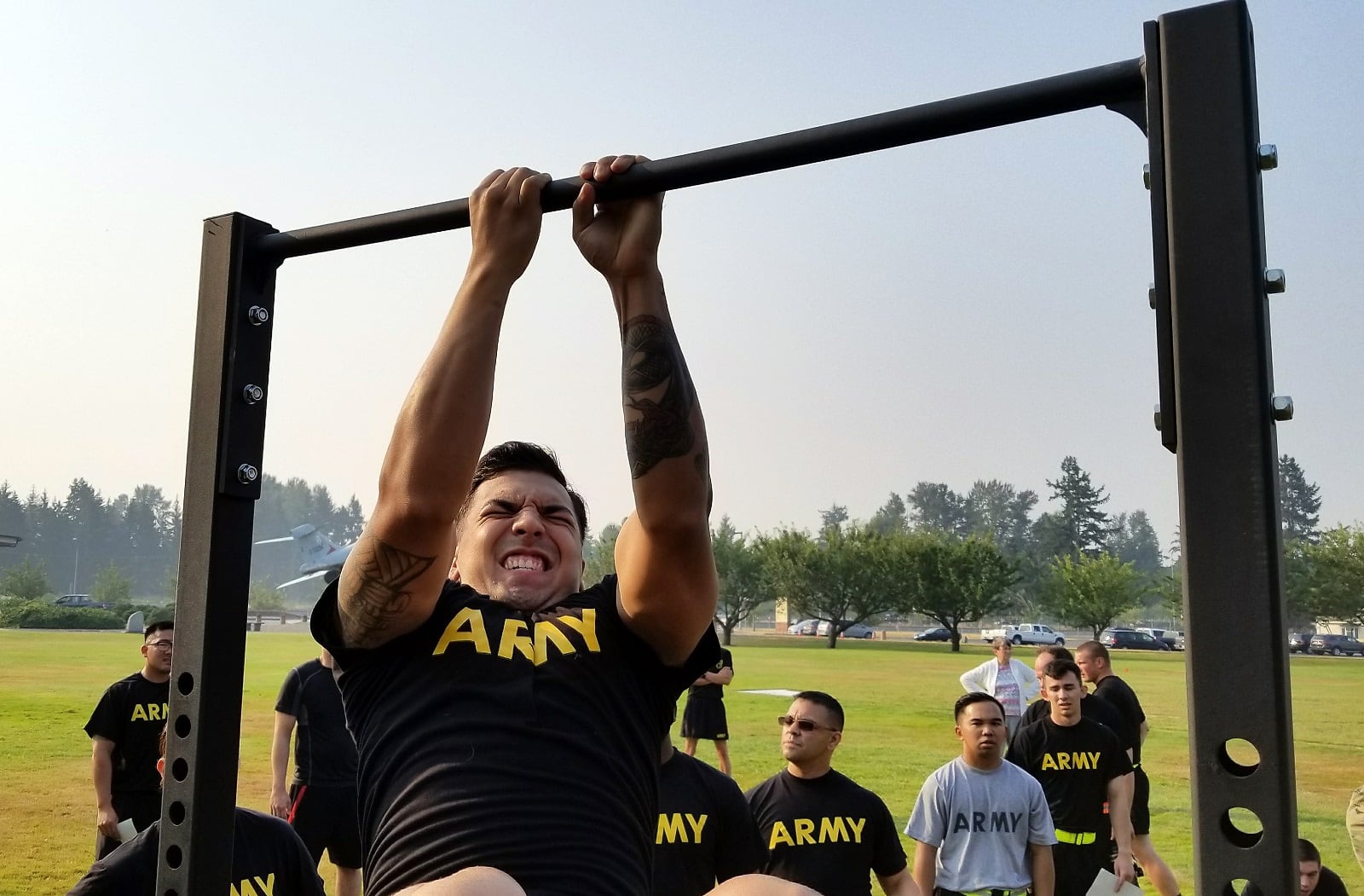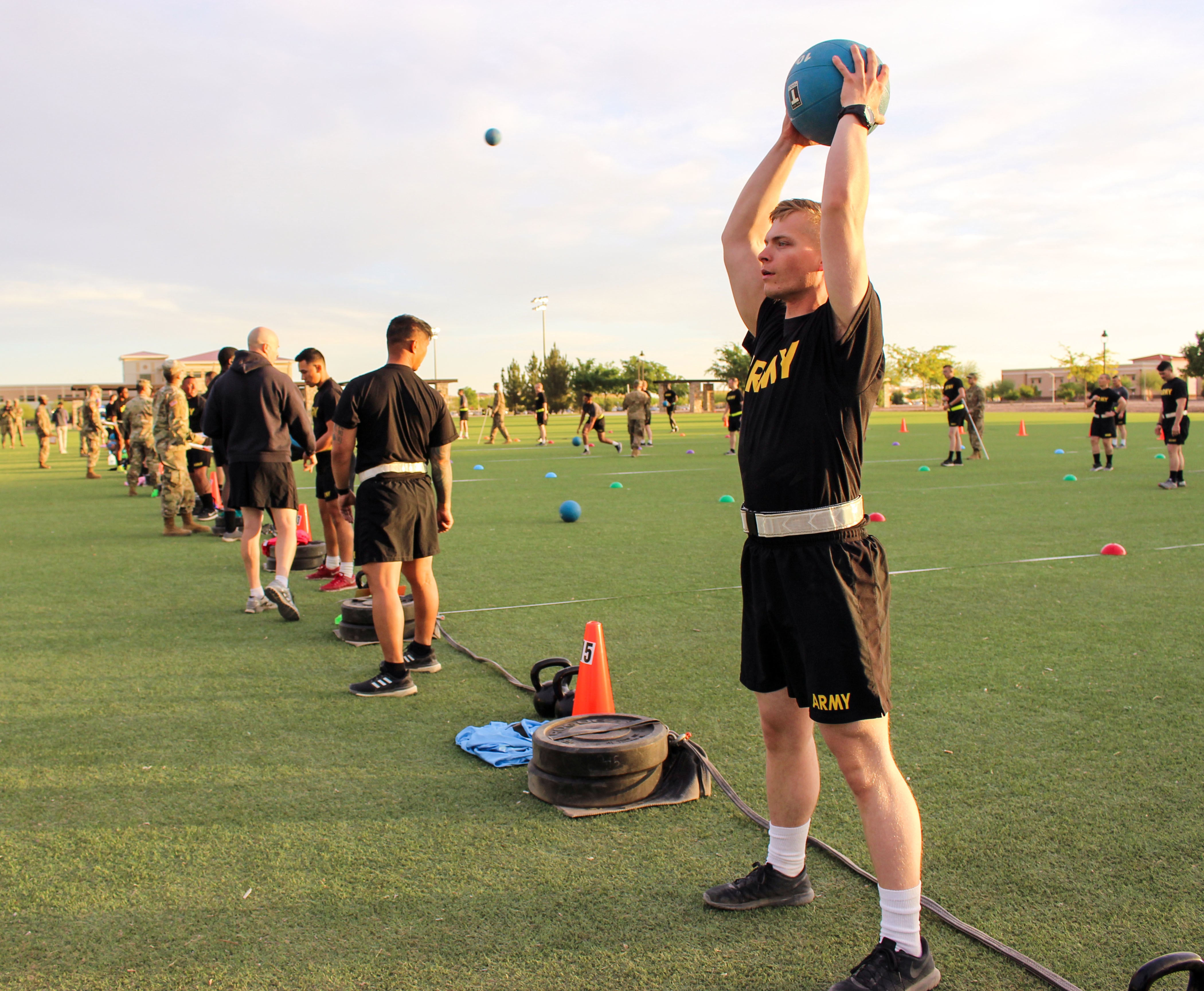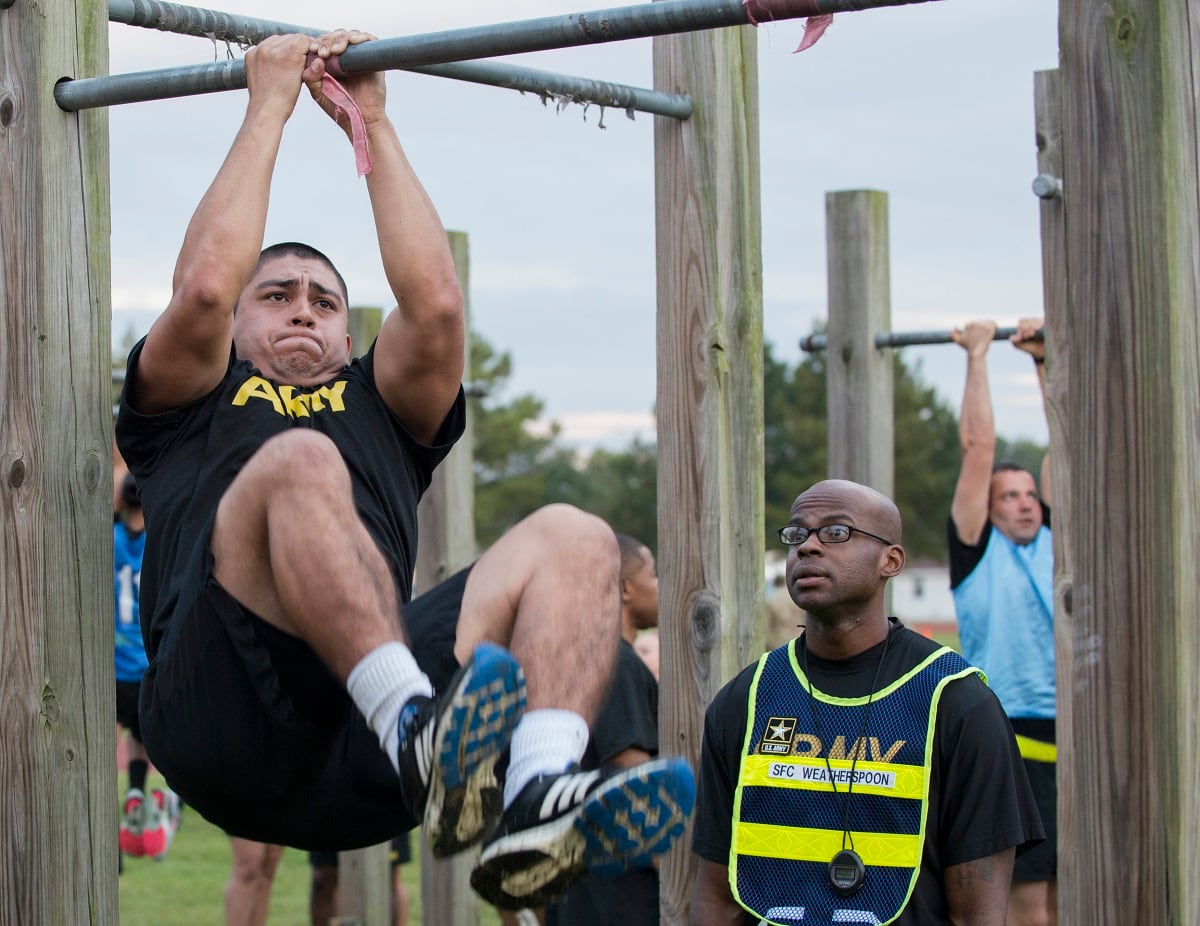NEW ORLEANS — Equipment requirements, logistics and training are on the minds of Army National Guard soldiers this year, as the Army prepares to roll out a new gender- and age-neutral fitness test.
But while soldiers voice trepidation, the larger Army says it’s not going to be an issue.
“I think the test is going to be good, [but] my concern in the National Guard is the equipment requirement,” a battalion commander from the Louisiana National Guard said during a discussion with Army Chief of Staff Gen. Mark Milley at the National Guard Association of the United States conference in New Orleans this past weekend.
“There’s a tremendous amount of equipment that’s going to be needed at every company, every armory, every detachment in order to administer the test and to train our troops. Have we addressed a plan to do that prior to the roll-out?” the soldier asked.
Milley said the equipment concerns were not just an issue for the Guard, but one across the force. However, the new Army Combat Fitness Test correlates much better to actual combat requirements, and “we’d all be negligent if we didn’t train to this [new] test," he said.
“In order to do it right there’s going to have to be a lot of training the trainers, it has be phased in, we have to make sure the scoring standards are correct, and, as you pointed out, it does require a little bit of equipment," Milley said.
RELATED

The ACFT field tests will begin in October and last one year. It will include 60 different types of battalions from all three components of the total force — active Army, Army Guard and Army Reserve.
Additionally, Milley said, Training and Doctrine Command is currently conducting an analysis of all the equipment required throughout the force, how much it will cost and how to distribute the gear to the entire Army.
There will be some challenges, Milley acknowledged.
“For example, embassies," he said. “We have soldiers at embassies around the world, not in big units but small ones. ... But the equipment is an issue. The Guard will get the same equipment the rest of the Army gets. In the meantime — which means the next year — you can train for it. This isn’t rocket science."
For instance, grab “a 10-pound medicine ball, throw it over your head. Every gym in America has a 10-pound medicine ball,” he added.
Similarly, he said, the hexagon deadlift bar needed for the test is available in the majority of gyms soldiers will run across.
“We’re going to get you the equipment. It’s going to get distributed to the force, but don’t wait. I guess I’m stomping my feet. Do. Not. Wait," Milley said. “This test is hard.”

Maj. Gen. Max Haston, Tennessee’s adjutant general, shared more on the equipment issue in an interview with Army Times.
“I’m really concerned about the new PT test,” Haston said. “It will be an issue. Small-town America doesn’t have a Gold’s Gym.”
Haston said the Tennessee National Guard draws soldiers from small communities where rural areas often have just one armory with only about 100 soldiers. The idea that disassociated solders at separate armories could just drive to a collective location to administer and train for the test doesn’t solve the logistical issue, Haston explained.
“Now you’ve got a cost of transportation. You also just lost a drill day of training,” Haston said. “We’ll make it happen, ... but one of the best deals that ever hit for us was the three-event PT test, because all you had to do was push-ups, sit-ups and a two-mile run. I can do that anywhere.”
“But this, it’s going to create a logistical challenge.”
Stephanie Slater, a spokeswoman for the Center for Initial Military Training, told Army Times in a statement that the concerns are understood and being dealt with.

“The Army has several remote locations across all components to include more than 1,500 recruiting stations, overseas assignments, Reserve and National Guard unit locations, fellowships and training assignments that take soldiers far from normal military base support,” Slater said. "There are seven National Guard battalions, seven Army Reserve units, and recruiting and ROTC units that were specifically chosen for the field test in order to evaluate and solve minor logistics challenges involved with remote locations. Additionally, training programs and equipping strategies are being developed in close coordination with all components."
Additionally, Slater said, the Army will soon publish an ACFT training guide with exercises to help soldiers prepare to take the new test.
“These specific exercises will use common strength training methods found in current Army doctrine,” she added.
Kyle Rempfer was an editor and reporter who has covered combat operations, criminal cases, foreign military assistance and training accidents. Before entering journalism, Kyle served in U.S. Air Force Special Tactics and deployed in 2014 to Paktika Province, Afghanistan, and Baghdad, Iraq.





